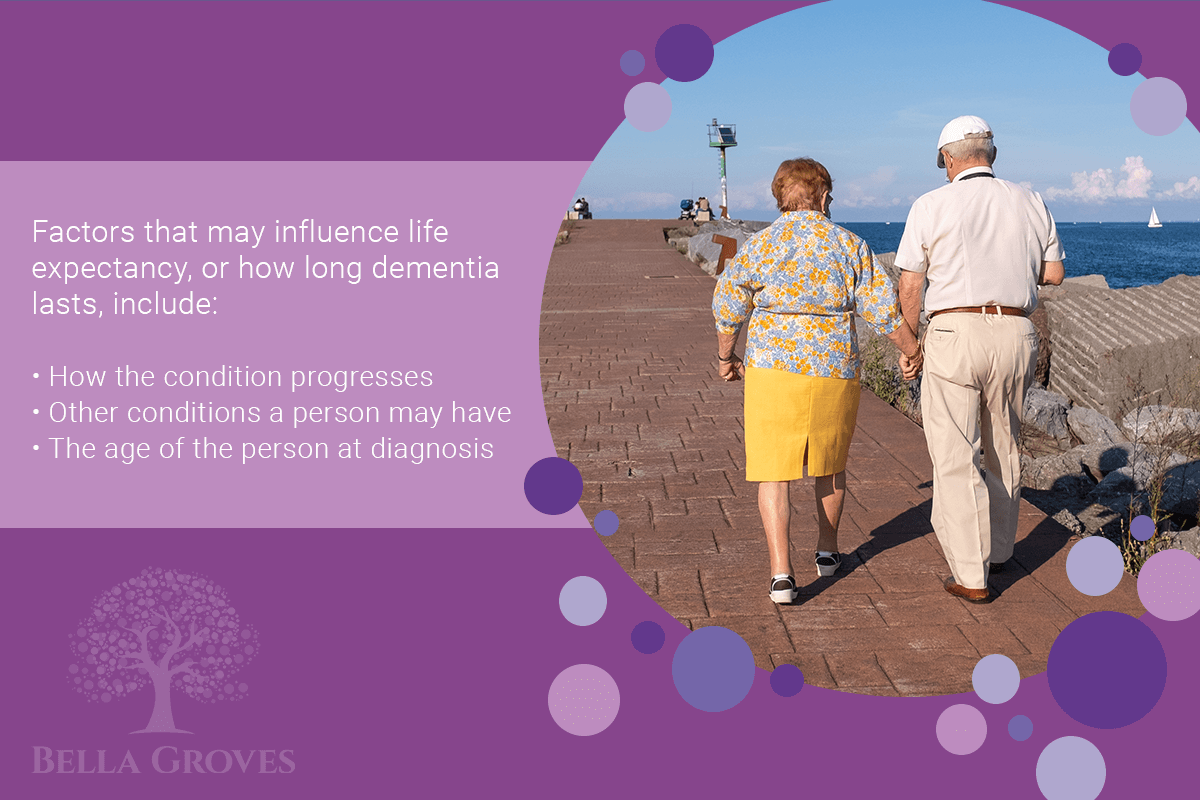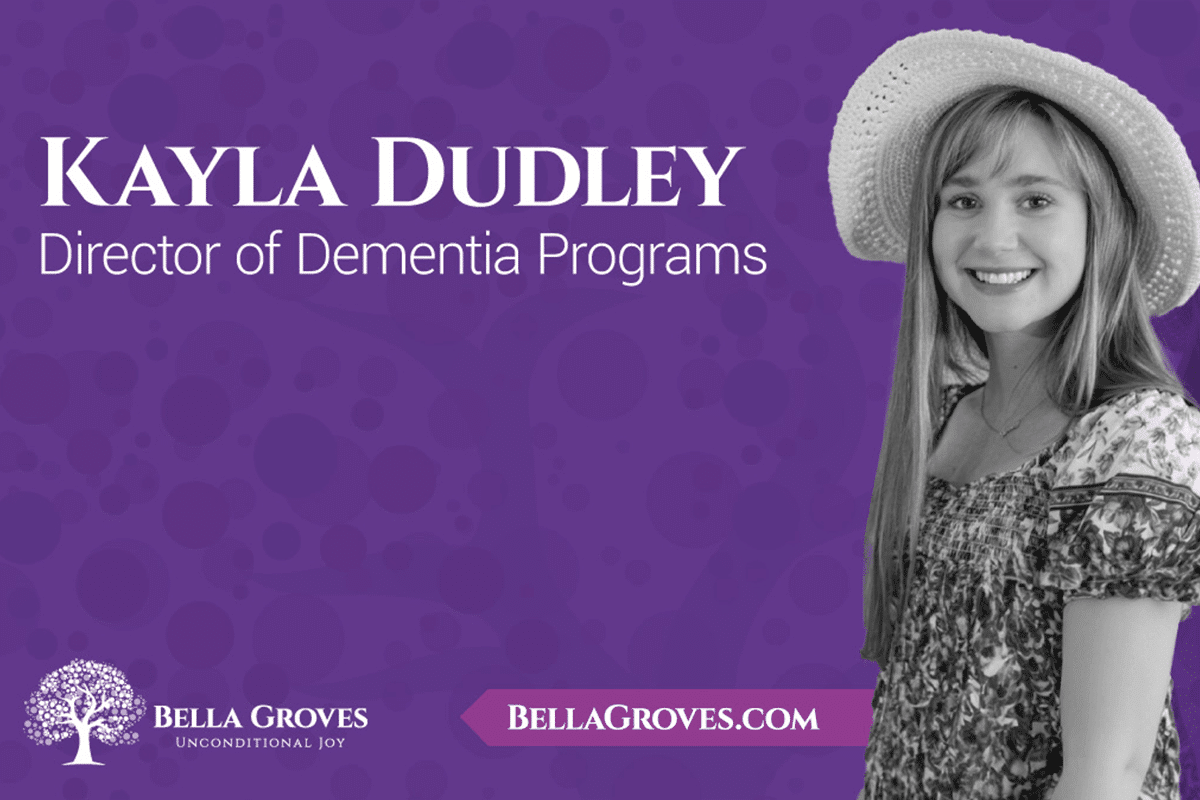
Dementia Life Expectancy: Misconceptions vs. Reality
Caring for a person living with dementia is an emotional and deeply personal experience. It’s a role filled with joy, challenges, uncertainty, and—often—unanswered questions. Among the greatest concerns families face is understanding how dementia impacts life expectancy. How long will Mom live with this diagnosis? What factors influence her health and well-being?
At Bella Groves, we want you to know you’re not alone in seeking answers. Our team is dedicated to providing support, dementia education resources, and expertise to help you better understand dementia.
Understanding Life Expectancy and Dementia
What is the Average Life Expectancy?
Life expectancy is the average number of years a person is expected to live based on various factors, such as age, gender, and overall health. Globally, advancements in healthcare have steadily increased life expectancy [for those without dementia], with many countries seeing averages ranging from 70 to 80 years for those without significant health conditions.
What is Life Expectancy in the Context of Dementia?
While advances in healthcare have extended life expectancy globally, dementia introduces unique complexities to this equation. When dementia becomes a factor, life expectancy can drastically change. While dementia is not considered a normal part of aging, it’s widely known that age can be one of the strongest risk factors for dementia. For example, let’s take a look at the average percentage of dementia diagnoses by age:
- Ages 70-74: 3%
- Ages 85-89: 22%
- Over 90: 33%
On average, individuals diagnosed with dementia live 4 to 8 years after diagnosis, though some may live up to 20 years depending on their overall health, age at diagnosis, and type of dementia.
When it comes to the type of dementia a person has, their average life expectancy after a diagnosis can be as follows:
- Alzheimer’s Disease: 8-10 years
- Vascular Dementia: 5 years
- Dementia with Lewy Bodies: 5-7 years
- Frontotemporal Dementia: 6-8 years
However, these numbers are simply averages found through various studies and research. While it can be devastating to think about the fact that dementia is known as a life-limiting disease, it’s important to remember the value of early detection.
Common Misconceptions
Myths about dementia often lead to confusion and unnecessary fears for families and care partners.
Myth: Life expectancy is the same for everyone with dementia.
Reality: Contrary to popular belief, life expectancy for individuals with dementia can vary depending on various factors. While dementia itself is a progressive condition that affects memory, thinking, and behavior, the rate of progression and its impact on life expectancy can differ from person to person.
Myth: A shorter life expectancy means a lower quality of life.
Reality: Changes to a person’s cognitive function don’t diminish their desire for connection and purpose. Instead of focusing on dementia, focus on the person. By doing so, you will put yourself in a better position to create meaningful moments that add value to the life of a person living with dementia.
In addition, dementia requires that we reframe our conceptions of what is meaningful and important. As dementia progresses, you may find that your family member’s interests and preferences begin to change. The most important thing you can do as a care partner is help a person living with dementia experience joy and happiness.
Factors Affecting Life Expectancy
Health Conditions and Lifestyle
Chronic conditions like heart disease, diabetes, or obesity can shorten life expectancy in individuals with dementia.
Genetics
While genetics play a role in some forms of dementia, they’re just one piece of the puzzle. Environmental [LINK TO JANUARY 1 BLOG] and lifestyle factors often carry more weight in determining health outcomes.
Quality of Care and Support
Care matters. Families that prioritize proper medical care, emotional connection, and engaging routines often help extend and improve the lives of those living with dementia.
Prioritize Life Satisfaction
Living with dementia doesn’t mean the end of joy, relationships, or meaningful engagement. Focus on creating opportunities for connection and fulfillment.
Activities and Therapies
Stimulating and enjoyable activities—like art, music, or light exercise—can bring purpose and joy to your loved one’s days. Therapeutic approaches, such as cognitive stimulation therapy, may help maintain mental function and improve mood.
Create a Supportive Environment
Small adjustments in the home can make a big difference. Consider labeling items, using calming colors, and reducing noise to minimize frustration and confusion.
At Bella Groves, we emphasize the importance of not just living but living well, even in the face of dementia.
Dealing with dementia goes beyond understanding the typical dementia life expectancy—it’s about cherishing the moments, navigating challenges with compassion, and fostering a sense of dignity and connection. By unraveling misconceptions and focusing on proactive care, you can create a framework for both practical planning and emotional fulfillment through every stage of the condition.
If you’re looking for guidance, dementia education resources, or just a compassionate ear, Bella Groves is here to help. Reach out to our team to learn more about how we can support you and your family.
You are not alone—and together, we can work toward a brighter path forward.

